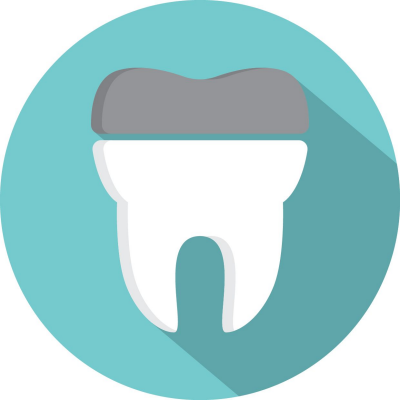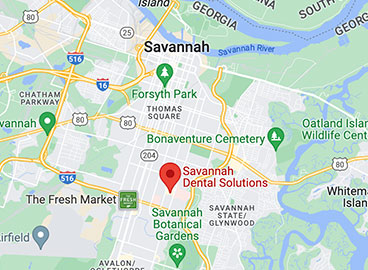Dental crowns, or caps that cover all of the visible structure of a tooth, are an extremely common part of modern dentistry. From severe decay to cosmetic concerns, dental crowns can address a vast range of tooth problems. Yet with so many different types of available crowns, it can be difficult to decide which one to choose. Here is what you should know about dental crowns.

Reasons for a Dental Crown
There are many reasons to place a dental crown. These are just a few of the most common:
- • To provide protection for at-risk baby teeth
- • To finish a dental implant restoration
- • To protect a very large filling
- • To fasten a dental bridge
- • To protect a tooth that is cracked or badly worn down
Types of Dental Crowns
Dental crowns are available in many types. Although some specific restorations require a particular type of crown, in the majority of cases, it is up to you. Your dentist will provide more information and help you select the type of crown that is right for you.
- • Resin Crowns: A composite material that is typically the least expensive, resin crowns can be color-matched to the other teeth. They are a good choice for people who are allergic to metals, as they contain no metal at all. However, resin does not age as well as other crown materials. Over time, it is likely that a resin crown will fail and need to be replaced. In addition, resin can cause gum inflammation, and a large amount of tooth structure must be removed for a resin crown to properly fit.
- • Stainless Steel: In adults, stainless steel is generally used only as a temporary protective measure while waiting for a permanent crown to come back from the lab. In children with tooth decay, however, stainless steel crowns are often the treatment of choice. The reason is that the baby tooth will fall out anyway, and will be replaced by a healthy adult tooth. Therefore, there is little reason to put the child and parents through the trauma and expense of switching from a temporary crown to a permanent one.
- • Gold and Other Metals: Gold, palladium, and base metal alloys are an interesting choice for dental crowns. They do not require as much tooth structure to be removed as other types of crowns, and they are not likely to damage the neighboring teeth. Metal crowns are durable, and are at low risk for breaking or chipping even under high bite forces. However, the distinctive metallic color makes them unappealing to many patients.
- • Porcelain-Fused-to-Metal: These crowns combine the natural look of porcelain with the functionality of metal. The under-structure provides enhanced strength and durability, while the porcelain overlay can be color-matched to the other teeth. However, the porcelain is at risk for chipping or cracking, and these crowns are more likely than all-metal crowns to damage the surrounding teeth. In addition, the aesthetics are not perfect, as the metal can show through as a dark line along the gums.
- • All-Porcelain Crowns: All-porcelain crowns are metal-free, making them an excellent choice for those with metal allergies. They are also the best for those who are particularly concerned with aesthetics, as they provide the best color-matching and most natural look. However, these crowns are more prone to damage than metal-based types, so care must be taken not to bite down too hard or to grind the teeth.
Like any treatment, dental crowns are not the right solution for every situation. Crowns preserve a great deal of healthy tooth structure, but not as much as more targeted solutions, such as fillings or veneers. A crowned tooth retains its nerve structure, which could be problematic if your tooth is sensitive to pressure, heat, or cold. In addition, a crowned tooth will never be as strong as a healthy tooth. The tooth will always be at greater risk for bacterial invasion and decay, although scrupulous oral hygiene can help to minimize this risk.
Only your dentist can help you decide whether a crown is right for you and, if so, which type is the best choice. Always discuss your treatment plan and any other options with your dentist, and decide together how to proceed.
Married dentists Chad and Alexandra Schnabel welcome you to Savannah Dental Solutions. From caring children’s dentistry to high-tech cosmetic procedures and even full-mouth reconstruction, we blend the latest technology with traditional customer-oriented values. To start your journey to better oral health, call us today at (912) 354-1366.


